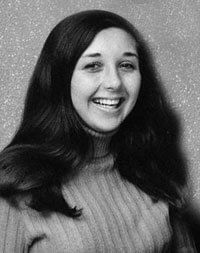
I was born after World War Two and as a youngster was fortunate enough not to have lived during a time of war, but as I grew up and learned about Israel and the problems it faced I understood the meaning of conflict. I suppose you could say that during the Six-Day War I was in one of the most exciting places outside Israel as I worked in the Editorial Department of the Jewish Chronicle in London.
I realized that news was being made in Israel a while before it came to the attention of the public. At that time there was more communication with news agencies, more communication with our correspondents and a general feeling that something was going to happen.
Excitement was beginning to mount. This was at a time before fax machines, e-mails, texting, mobile telephones and today’s technology, when it wasn’t so easy to communicate quickly from a long distance. The JC had three correspondents in Israel, and many more all over the world including the United Kingdom. News was reported to us through telephone calls, telex messages and cables through Cable and Wireless.
My job meant that I was dealing with home correspondents (UK) and all foreign correspondents. We had no correspondents in Arab countries so we got news from foreign agencies and our sub-editors had to trawl through pages of type, home and foreign newspapers and anything in which they could find information about what was happening in the Middle East. The reporters were in constant communication with Reuters News Agency.
“The atmosphere seemed to heat up and then explode…”
There were close links with the Israeli Embassy with specialist reporters dealing primarily with it and others dealing with government offices in London. Newspapers are usually busy places, especially on press day, but as things started to happen the atmosphere seemed to heat up and then explode. Phones didn’t stop ringing, people rushed from office to office, the telex machines were working non-stop and meetings were constantly being called to keep all those who dealt with news up to date.
As part of my job I had to man the news desk and work with the Home and Foreign Editors. I collected all messages that came in by various means, distributed them to the sub-editors in charge of that subject, took telephone calls from the public wanting to give their bits of news to the paper. When we finally managed to get in touch by telephone with one of the correspondents in Israel I had to take down his story over the phone. I was sending telex messages to all those correspondents who had a part to play in the unfolding drama. We had two New York correspondents, one of whom reported information from the United Nations and with whom we were constantly in touch. From the moment that news and stories started coming in and we realised what was happening, the Editorial Department became buzzing with activity..
I think everyone who worked in Editorial was Jewish, but certainly there was a very large number of non-Jews working in the Printing and other Departments. During the days of the War there was a service held every morning in the sub-editors room. Many of the staff attended these services together with numerous non-Jewish members of staff – the room was always packed. The service only lasted about ten minutes, prayers were said and either the Editor, William Frankel, or another member of the Editorial Department would say a few words.
The whole week was quite exhausting. No-one could relax and it took another few weeks before everything got back to normal (or as normal as it could be at that time). Of course, the fact that the Six-Day War took place at all was bad enough, but I look back on that time and realize that I was almost in the middle of it, without actually being in the Middle East. History was being made, journalists were playing an important part in it and I like to think I did what I could at that very momentous time.
– Sybil Greenstein


